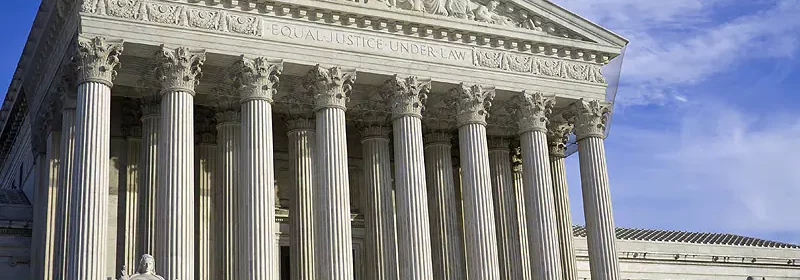Supreme Court Blocks Biden Vaccine Mandate for Businesses

Editor’s note: Find the latest COVID-19 news and guidance in Medscape’s Coronavirus Resource Center.
The U.S. Supreme Court on Thursday struck down President Joe Biden’s vaccine mandate for large businesses but said a similar one may continue while challenges to the rules move through lower courts.
The vote was 6-3 against the large business mandate and 5-4 in favor of the health care worker mandate. Only health care workers at facilities that receive federal money through Medicare or Medicaid are affected, but that includes large swaths of the country’s health care industry.
Biden’s proposed vaccine mandate for businesses covered every company with more than 100 employees. It would require those businesses to make sure employees were either vaccinated or tested weekly for COVID-19.
In its ruling, the majority of the court called the plan a “blunt instrument.” The Occupational Safety and Health Administration was to enforce the rule, but the court ruled the mandate is outside the agency’s purview.
“OSHA has never before imposed such a mandate. Nor has Congress. Indeed, although Congress has enacted significant legislation addressing the COVID–19 pandemic, it has declined to enact any measure similar to what OSHA has promulgated here,” the majority wrote.
The court said the mandate is “no ‘everyday exercise of federal power.’ It is instead a significant encroachment into the lives — and health — of a vast number of employees.”
Biden, in a statement following the rulings, said when he first called for the mandates, 90 million Americans were unvaccinated. Today fewer than 35 million are.
“Had my administration not put vaccination requirements in place, we would be now experiencing a higher death toll from COVID-19 and even more hospitalizations,” he said.
The mandate for businesses, he said, was a “very modest burden,” as it did not require vaccination, but rather vaccination or testing.
Anthony Kreis, a constitutional law professor at Georgia State University in Atlanta, said the ruling shows “the court fails to understand the unparalleled situation the pandemic has created and unnecessarily hobbled the capacity of government to work.
“It is hard to imagine a situation in dire need of swift action than a national public health emergency, which the court’s majority seems to not appreciate.”
While the Biden administration argued that COVID-19 is an “occupational hazard” and therefore under OSHA’s power to regulate, the court said it did not agree.
“Although COVID–19 is a risk that occurs in many workplaces, it is not an occupational hazard in most. COVID–19 can and does spread at home, in schools, during sporting events, and everywhere else that people gather,” the justices wrote.
That kind of universal risk, they said, “is no different from the day-to-day dangers that all face from crime, air pollution, or any number of communicable diseases.”
But in their dissent, justices Stephen Breyer, Sonia Sotomayor and Elena Kagan, said COVID-19 spreads “in confined indoor spaces, so causes harm in nearly all workplace environments. And in those environments, more than any others, individuals have little control, and therefore little capacity to mitigate risk.”
That means, the minority said, that COVID–19 “is a menace in work settings.”
OSHA, they said, is mandated to “protect employees” from “grave danger” from “new hazards” or exposure to harmful agents. COVID-19 certainly qualifies as that.
“The court’s order seriously misapplies the applicable legal standards,” the dissent says. “And in so doing, it stymies the federal government’s ability to counter the unparalleled threat that COVID–19 poses to our nation’s workers.”
On upholding the vaccine mandate for health care workers, the court said the requirement from the Department of Health and Human Services is within the agency’s power.
“After all, ensuring that providers take steps to avoid transmitting a dangerous virus to their patients is consistent with the fundamental principle of the medical profession: first, do no harm,” the justices wrote.
In dissenting from the majority, justices Clarence Thomas, Samuel Alito, Neil Gorsuch and Amy Cohen Barrett said Congress never intended the department to have such power.
“If Congress had wanted to grant [HHS] authority to impose a nationwide vaccine mandate, and consequently alter the state-federal balance, it would have said so clearly. It did not,” the justices wrote.
Source: Read Full Article